Activities
ASPIRE Undergraduate Engineering Design Challenge 2022
- Date:
- June 27 - July 1, 2022
- Hosted by:
- Tokyo Tech
- Venue:
- Online
Tokyo Tech hosted the ASPIRE Undergraduate Engineering Design Challenge online (UEDC), a workshop for undergraduate students, from June 27 to July 1, 2022. This workshop is a newly launched educational program for undergraduates of ASPIRE League’s member universities, following the League’s first program for undergraduate students: the ASPIRE Undergraduate Research Academy (UGRA). In July 2014, Nanyang Technological University, Singapore (NTU) initiated the ASPIRE UGRA as an educational program for undergraduate students undertaking research projects, and NTU continued hosting this program through 2016. Subsequently, KAIST hosted the UGRA in 2017, 2018, 2019, and 2021.
This program was planned and implemented by Associate Professor Kazuaki Inaba (Department of Transdisciplinary Science and Engineering, School of Environment and Society) together with Associate Professor Masaki Yagisawa (Department of International Digital and Design Management, School of Management, Tokyo University of Science) as an online workshop where students can learn the basics of engineering design.
A total of 13 students (four each from HKUST, Tsinghua University and Tokyo Tech, and one from KAIST) participated, utilizing tools such as Slack, Zoom, and Miro (online whiteboard).
On the second day of the program, a lecture was given on Japanese Noh, one of Japan’s representative traditional performing arts.
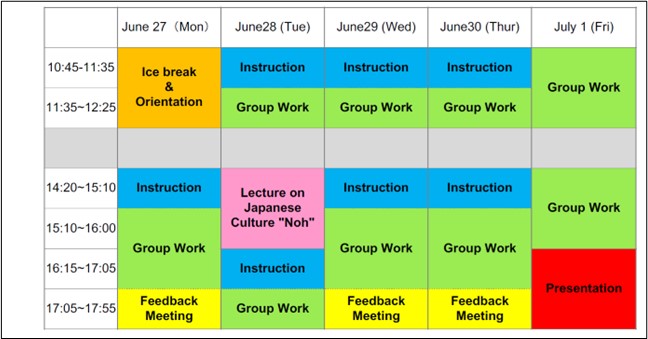
Workshop Schedule
Workshop: What is Design Thinking?
The objective of this year’s workshop was to explore new designs and services by understanding the five basic steps of the “design thinking” approach: empathize, define, ideate, prototype, and test. The assignment was to design a product, system and/or service purchased only by Japanese people, using a Japanese tradition as a prompt. The students were divided into four teams of mixed universities, and began by selecting and learning about particular cultural and seasonal events in Japan, noting contrasts with their own country. Each team chose a unique Japanese event – such as hanami and yozakura (cherry-blossom picnics and viewing at night), tanabata (Star Festival), fireworks, writing New Year’s greeting cards – and interviewed Japanese people about it. The participants repeatedly tested their ideas for their product or service including giving interviewees tangible prototypes. They finally put together a proposal for their new product and/or service for the presentation on the last day of the program.
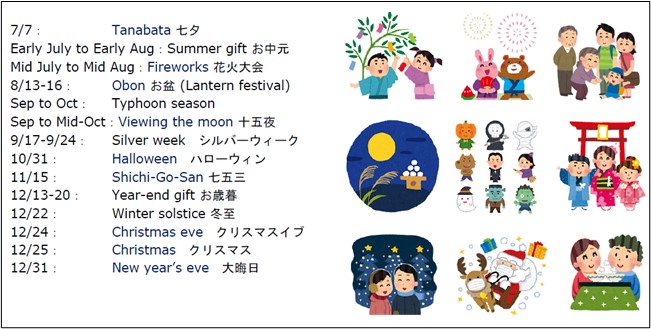
Cultural and seasonal events in Japan (discussed in the orientation)
During the workshop, Professor Shigeki Saito, Professor Miki Saijo, Associate Professor Takumi Ohashi, and Assistant Professor Yuki Taoka – all who belong to the Department of Transdisciplinary Science and Engineering of the School of Environment and Society – made comments on and gave advice regarding each team’s activities at three feedback meetings, after which participants refined their ideas for their final presentations.
In addition, five graduate students from Tokyo Tech joined each team as teaching assistants to support team discussions.
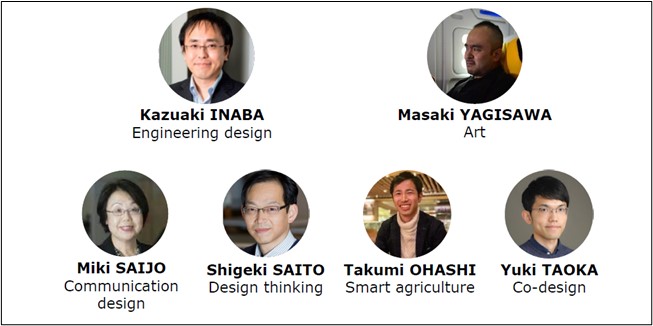
Faculty members
On the final day, this year’s workshop ended on a high note, with each team successfully completing their assignment of designing a product, system, and/or service that only Japanese people would purchase as a part of their presentation.
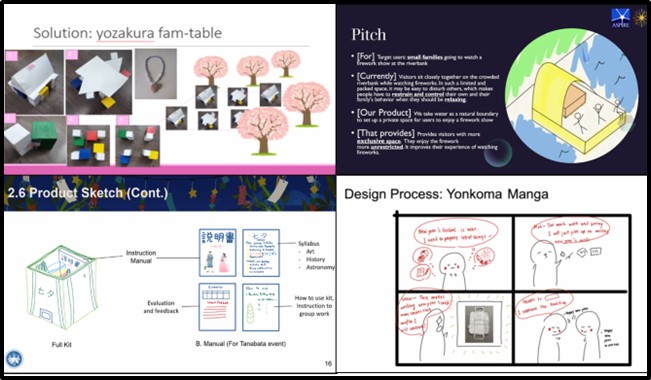
Draft presentation of each group
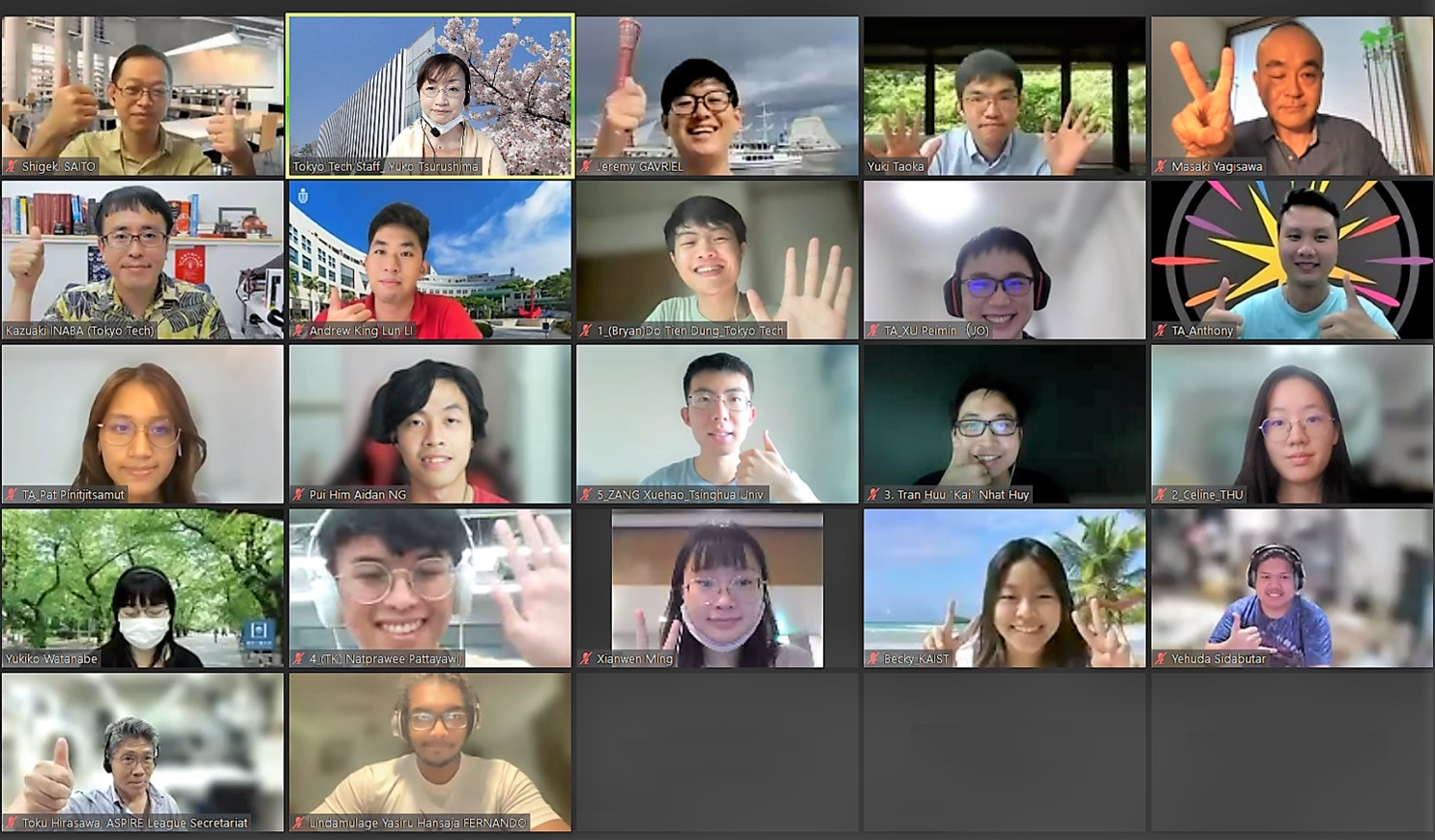
Commemorative photo on the last day
Introduction to Japanese Culture: Noh
On June 28, Associate Professor Mariko Anno of the Institute for Liberal Arts gave a lecture on Noh as an introduction to Japanese culture.
She introduced Noh drama (a traditional Japanese performing arts from the Muromachi period) from a studio at Tokyo Tech and concluded with a live performance of Nohkan (Noh flute) by herself.
All participants were immersed in the world of Noh, which they were hearing about for the first time, making the lecture an elegant and valuable experience.
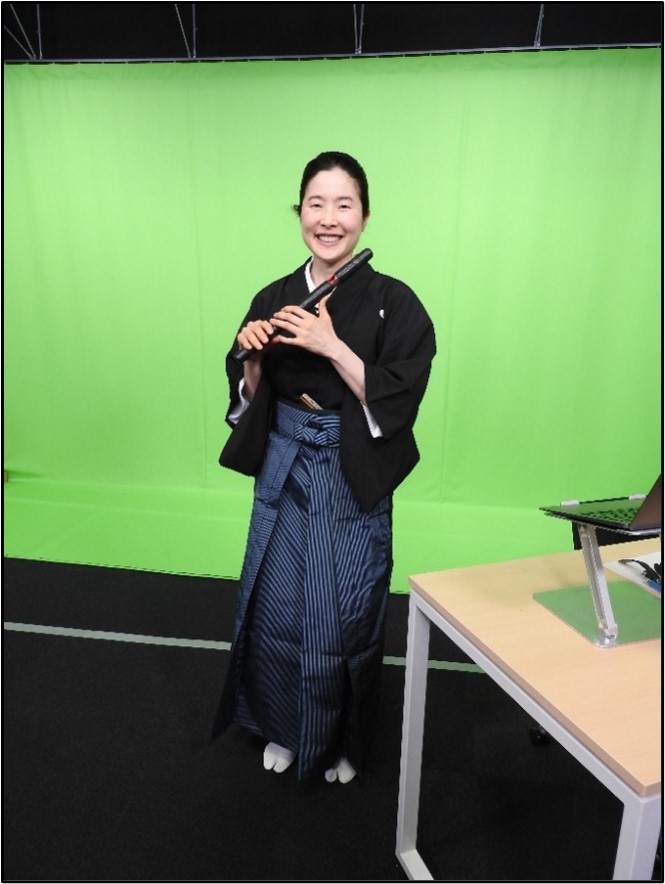
Associate Professor Mariko Anno, Institute for Liberal Arts
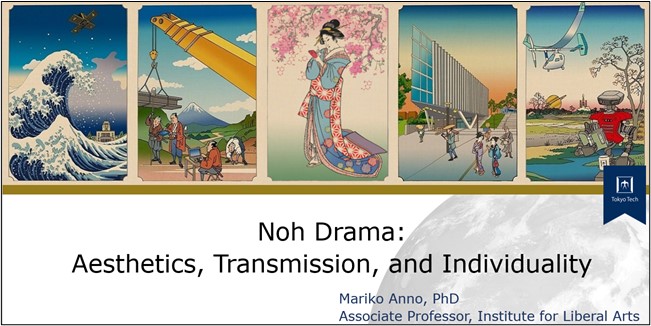
Introduction to Japanese Culture Noh
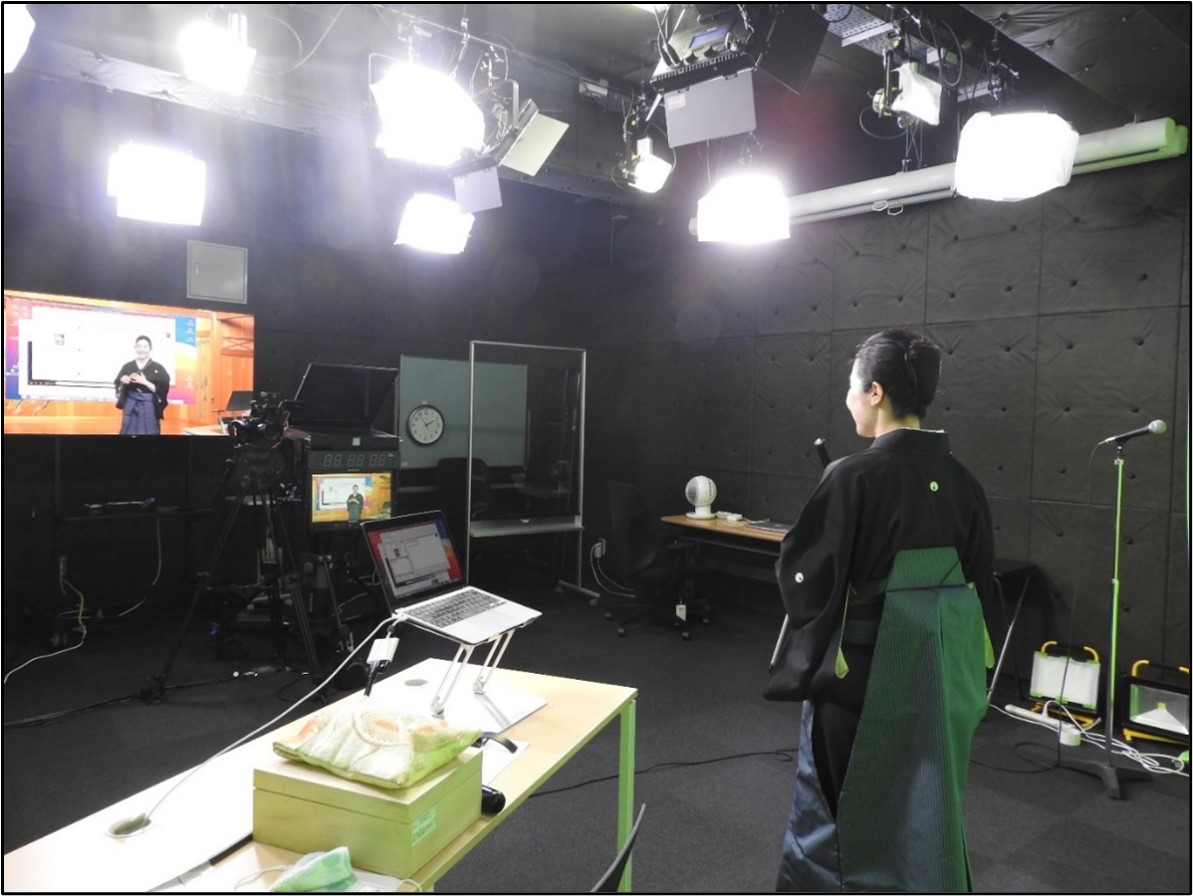
Live streaming from a studio at Tokyo Tech
-
The 7th ASPIRE Undergraduate Research Academy (UGRA)
- Date:
- July 9th, 2021
- Hosted by:
- Korea Advanced Institute of Science and Technology (KAIST) International Relations Team (IRT)
- Venue:
- Online (via Zoom)
- Theme:
- Better Living for All through Innovative Technologies
-
ASPIRE Undergraduate Engineering Design Challenge 2023
- Date:
- June 26 - June 30, 2023
- Hosted by:
- Tokyo Tech

